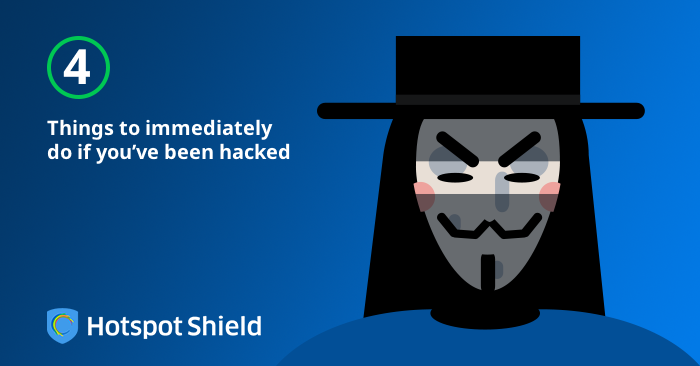How to get a Finnish IP address
The easiest way to improve your digital privacy is to switch your IP address using a VPN. We’ll …


Your friends are getting weird emails from your account. You see a lot of strange popups in your browser. Your computer is acting odd. These are some telltale signs that you’ve been hacked. Instead of panicking, pulling out your hair, or swearing off internet use for the rest of your natural life, act to stop the hackers and restore your peace of mind. Once you discover you’ve been hacked, take the following steps immediately.
Assess how much damage the hack has caused. Using a secure device on a secure connection — you may want to borrow a friend’s device for this — log into all of your online accounts and check for any activity that isn’t yours. Start with your bank account and any credit cards you have. If you notice anything suspicious, call customer service right away to get the account frozen. Some credit card companies even have an app that lets you remotely freeze and unfreeze your account.
If you’re unable to log into any of your accounts, even though you know you entered your correct password, contact customer service right away.
Reset your passwords for all your online accounts. This might seem like a big hassle, but it will help put a halt to hackers’ activity.
Do not make all your passwords the same, and make sure the new passwords you choose are strong. When you choose new passwords, do the following:
If you’re afraid you can’t remember all those strong passwords, you can use a professional password manager to store them. However, even your password manager may not be totally secure. To be completely sure that your passwords are safe, write them down on a piece of paper and hide it somewhere safe in your house — cyber villains can’t hack a sticky note.
Also check the settings on all your accounts. A hacker might have created a backdoor by changing your security questions.
Sometimes, a hack might come along with some malicious programs that steal your information, install annoying programs, and make your cyber life miserable. Run a malware scan to detect and eliminate these threats.
Also, be sure to update your computer. While it might be annoying that your computer is constantly notifying you about the latest updates, you shouldn’t ignore those notices, because those updates are frequently related to security.
If the attack on your computer has been particularly vicious, you may have to reset your computer to its factory settings. You could lose valuable data if you do this, so be sure to back up as much as possible before you take the plunge.
Get hacked once, shame on the hacker; get hacked twice, shame on you. While there is no way to prevent all hacking, there are some things you can do to make your computer more secure.
Use a virtual private network, or VPN. A VPN such as Hotspot Shield encrypts all your online activity and disguises your IP address. Even when you are using public Wi-Fi, which is notorious for exposing users to creeping eyes, there will be a wall between you and hackers.
Adjust your habits. Hackers tend to gravitate toward easy victims. Perhaps you were hacked in the first place because your computer usage habits weren’t quite up to snuff. Always do the following:
Hackers are ruthless, and they won’t hesitate to violate your privacy and steal your information. If you get hacked, take immediate action to stop the damage—then shore up your defenses so you’re unlikely to ever be the victim of a hack again.
